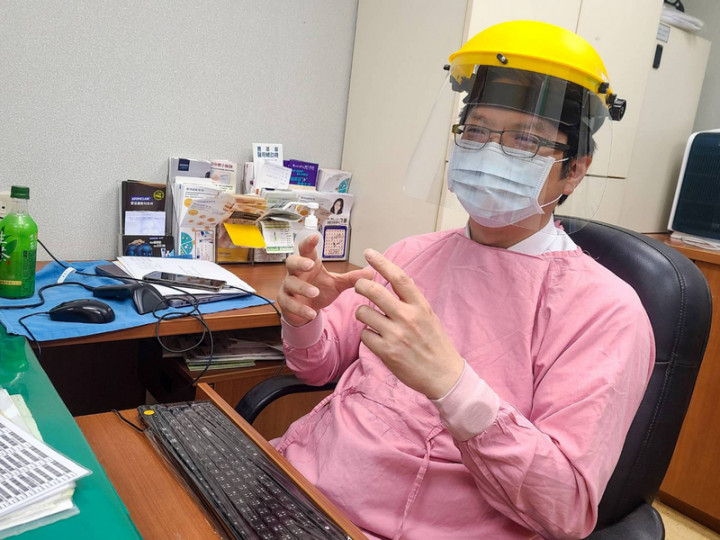
Taipei, June 10 (CNA) People who are allergic to certain food or medication should still get vaccinated against COVID-19, as most of their allergic reactions can be treated, a medical expert from Linkou Chang Gung Memorial Hospital in Taoyuan City told CNA on Thursday.
Dermatologist Chung Wen-hung, who is also director of Chang Gung’s Drug Hypersensitivity Clinical and Research Center, urged people to get a COVID-19 vaccine as soon as they are allowed to because the virus is more deadly than vaccine-induced allergic reactions.
Most allergic reactions triggered by vaccines can be treated with medicine or other treatment, said Chung, adding that his hospital has received many inquiries recently about this issue after the Central Epidemic Command Center (CECC) announced its plan to expand its vaccination program.
Starting June 15, seniors 75 years old and over, residents and workers at long-term care facilities and kidney dialysis patients will be eligible for a COVID-19 vaccination, according to the CECC.
Currently, only medical personnel, epidemic prevention workers and people in other high-risk jobs are on the priority list for the country’s vaccine rollout plan.
At least 759,000 COVID-19 vaccine doses have been administered in Taiwan as of Thursday, and most of them were AstraZeneca vaccines.
So far, Taiwan has confirmed one case of blood clotting and more than 100 incidents of severe allergic reactions, all of which were related to the AstraZeneca vaccine.
Some people might suffer acute allergic reactions, such as hives and shortness of breath, shortly after being given a vaccine jab, while others may get a rash or more serious response a few days after the injection, Chung said.
However, all those symptoms will subside after medical treatment, Chung added.
According to Chung, Taiwanese nationals are more prone to medicine-induced allergic reactions than people from other countries.
Chung did not explain why, but said allergies to food and medication usually indicate a high sensitivity to external substances.
Chen Wei-ti, another dermatologist at Chang Gung, told CNA that vaccine-induced allergic reactions are linked to the excipient, a substance added to a vaccine that acts as a stabilizer or for other purposes.
Vaccines manufactured by AstraZeneca and Johnson & Johnson contain an excipient called polysorbate, while vaccines developed by Pfizer-BioNTech and Moderna add another excipient called polyethylene glycol (PEG), Chen said.
According to the U.S. Centers for Disease Control and Prevention, people who have allergic reactions to polysorbate should not receive AstraZeneca or Johnson & Johnson vaccines and should instead, choose other brands that use PEG.
Similarly, those who are allergic to PEG should not get the Pfizer-BioNTech or Moderna jabs, the centers added.
Regardless, they should tell medical personnel their past food and drug allergies before receiving any COVID-19 vaccines, Chung noted.
Anyone who has suffered allergic reactions after the first dose should consider choosing a different brand of vaccine for their second dose, he added.